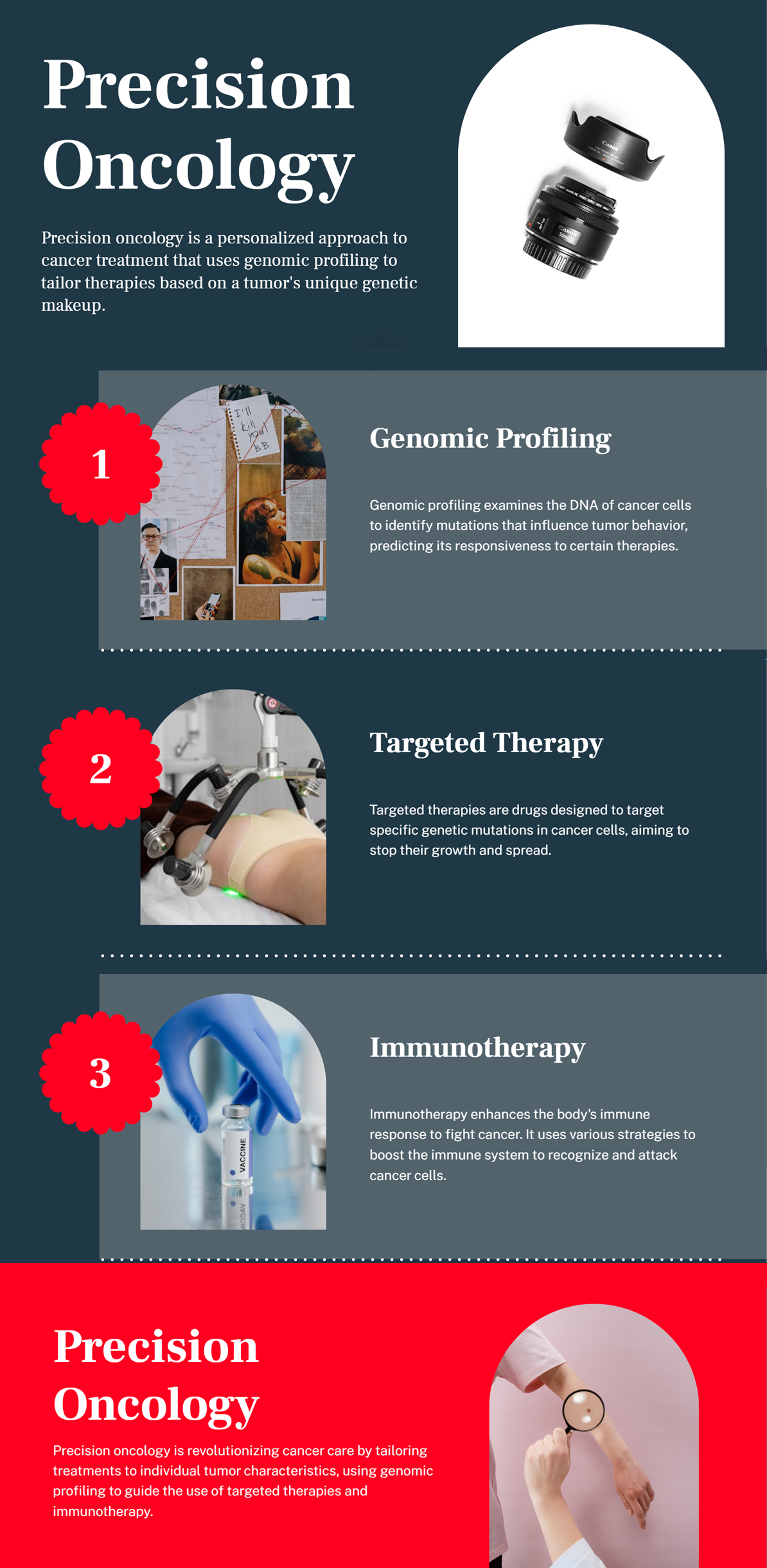Cancer treatment has evolved significantly over the past decade, shifting from standard chemotherapy to more targeted and personalized approaches. Precision oncology leverages genomic profiling to identify genetic mutations within tumors, allowing for tailored treatments. One of the most promising advancements in this field is the integration of genomic profiling with immunotherapy, enhancing the ability to combat cancer by utilizing a patient’s own immune system.

What Is Precision Oncology?
Precision oncology is a personalized approach to cancer treatment that utilizes a patient's genetic information to develop targeted therapies. Unlike standard treatments that adopt a one-size-fits-all method, precision oncology tailors therapies based on a tumor’s specific genetic and molecular characteristics.
Key Components of Precision Oncology

What Is Genomic Profiling?
Genomic profiling (or genetic sequencing) examines the DNA of cancer cells to identify mutations that influence tumor behavior. These mutations can predict tumor responsiveness to certain therapies, allowing oncologists to design targeted treatment plans.
Types of Genomic Profiling Techniques
| METHOD | DESCRIPTION |
|---|---|
| Whole Genome Sequencing (WGS) | Sequencing the entire genome of a tumor. |
| Whole Exome Sequencing (WES) | Sequencing only the coding regions (exons) of genes. |
| Targeted Gene Panels | Screening for specific known cancer-related mutations. |
How Genomic Profiling Helps in Cancer Treatment

What Is Immunotherapy?
Immunotherapy is a type of cancer treatment that enhances the body’s natural immune response to fight cancer. Unlike chemotherapy, which kills both cancerous and healthy cells, immunotherapy is highly specific, reducing side effects.
Types of Immunotherapy in Oncology
Challenges in Immunotherapy
Predicting Immunotherapy Response
Genomic profiling helps determine whether a patient is likely to respond well to immunotherapy. Key genetic markers influence immunotherapy effectiveness, such as:
Matching the Right Patients with the Right Therapy
By integrating genomic profiling with immunotherapy, oncologists can:
Combination Approaches: Targeted Therapy + Immunotherapy
Recent studies suggest that combining targeted therapies with immunotherapy enhances treatment efficacy. For example:

Complexity of Tumor Evolution
Tumors evolve over time, developing resistance to therapies. Continuous genomic monitoring is required to adjust treatment strategies.
Cost and Accessibility
Ethical and Privacy Concerns
AI and Machine Learning in Cancer Treatment
Expansion of Liquid Biopsies
More Effective Combination Therapies
Wider Availability and Cost Reduction
The integration of genomic profiling with immunotherapy marks a revolution in cancer treatment. By identifying tumor-specific mutations, precision oncology ensures that patients receive the most effective therapies, improving outcomes and minimizing unnecessary treatments. While challenges exist, advancements in AI, machine learning, and liquid biopsies promise to make precision oncology more accessible and effective in the near future.
By continuing research, expanding access, and refining treatment strategies, the future of cancer care will move towards more personalized, efficient, and patient-centered approaches.
Genomic profiling identifies specific mutations in a patient’s tumor, allowing doctors to select targeted therapies that are more likely to be effective.
Immunotherapy does not work for all patients, can cause autoimmune reactions, and is often expensive. Additionally, tumors may develop resistance over time.
Not all cancers have actionable genetic mutations. However, ongoing research is identifying more targets for precision treatment.
Coverage varies depending on the country and insurance provider. Some genomic tests are covered, especially if they are FDA-approved for specific treatments.
With advancements in technology, costs are expected to decrease, making genomic profiling and immunotherapy more widely available in the next decade.
 05.02.2025
05.02.2025